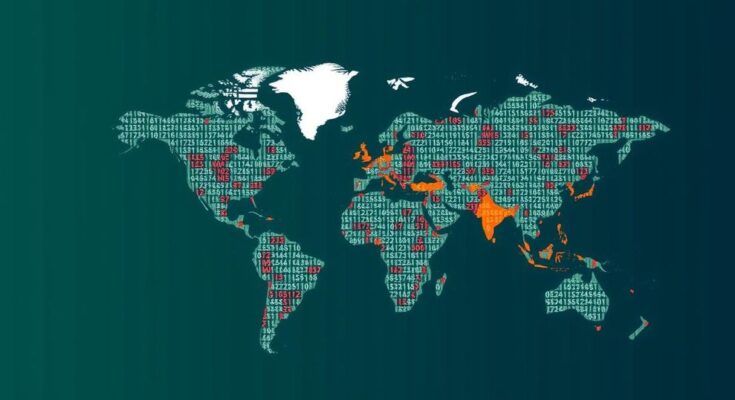The COP29 climate conference revealed a significant disparity in climate finance expectations, with wealthy nations pledging $300 billion annually, a figure deemed insufficient by poorer nations. As political dynamics change in key contributors, Europe seeks to enhance accountability in climate funding. The conference emphasized the necessity of greater commitments and reform in financial structures to assist vulnerable countries grappling with climate impacts.
The ongoing COP29 climate conference in Baku has exposed a stark divide in global climate finance expectations, particularly amidst changing political landscapes in several wealthy nations. The commitment of $300 billion annually by 2035 from rich countries, while seen as an increase from the previous $100 billion pledge, has been met with disappointment from poorer nations, which demand far more significant support. Germany, the European Union, and the United Kingdom are attempting to lead efforts in climate financing even as political realities make an aggressive approach increasingly challenging.
The attendance of officials such as European climate commissioner Wopke Hoekstra and German Foreign Minister Annalena Baerbock highlighted the urgency of the situation. They emphasized the need for realistic commitments while acknowledging the geopolitical challenges that temper enthusiasm for robust climate initiatives. Baerbock stated that Europe must fulfill its responsibilities without making unverifiable promises.
Furthermore, the financing gap remains immense, with a requirement of $1.3 trillion annually indicated at COP29, thus revealing that the current rich nations’ pledge is insufficient. Critically, the incorporation of climate finance through international financial institutions has stirred debate, especially regarding transparency and the potential inclusion of major emitters like China. Moreover, there is a concerted call for substantial reform within the global financial system to ensure that climate financing is both adequate and equitable.
The conversation is evolving towards a recognition that wealthy nations hold a moral obligation to contribute significantly to climate finance, given their historical emissions and the ongoing adverse effects on developing countries. As the conference continues, the imperative for a strategic and impactful approach to climate financing remains at the forefront, aiming to reconcile ambitious goals with the stark realities of political change.
As the impact of climate change intensifies worldwide, discussions on climate finance have gained prominence at international forums, notably COP29. This year, with the backdrop of a critical political shift in the United States following the election of Donald Trump, skepticism toward climate change and funding has emerged anew. Additionally, the political climates in Germany, Canada, and Australia, where conservative candidates may undermine previous climate commitments, pose challenges to proactive climate policies. Developments at COP29 underscore the urgency for developed nations to take responsibility for the consequences of their historical greenhouse gas emissions and to meet the financing expectations articulated by poorer countries grappling with climate disasters.
In conclusion, COP29 has illuminated the urgent need for increased climate financing amidst shifting political environments in wealthy nations. The $300 billion commitment, while a step forward, is inadequate compared to the estimated $1.3 trillion required annually. The discussions emphasize a need for wealthy nations to re-evaluate their obligations and adopt a more transparent and responsible approach to climate finance, recognizing their moral duty to assist the most affected by climate change. The way forward will involve enhanced cooperation and innovative strategies to secure funding for impactful climate action.
Original Source: www.fox28spokane.com




